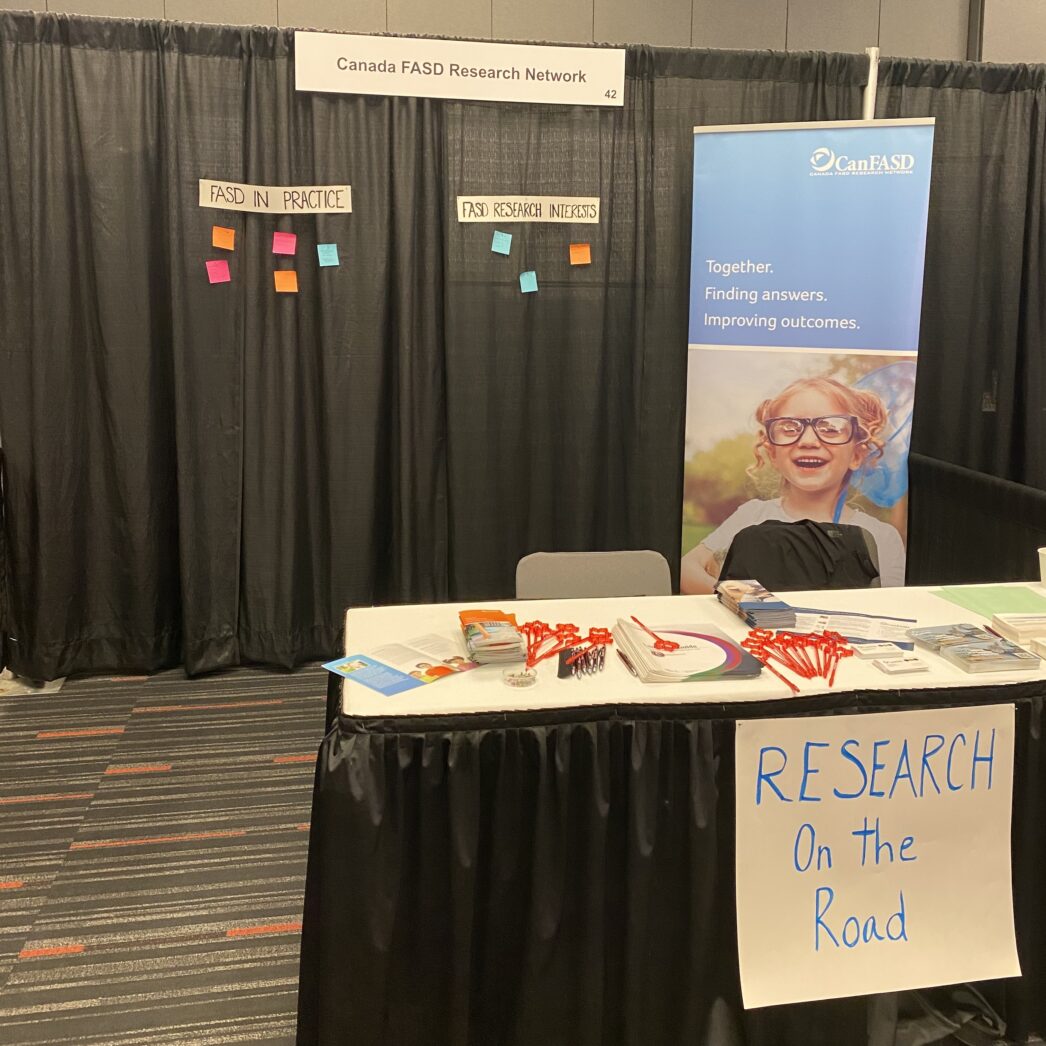Last week CanFASD staff went to the Canadian Paediatric Society Conference in Montreal. We got to meet a number of paediatricians and health professionals from all across Canada who stopped by our exhibit booth.
Our new initiative “Research on the Road” asked people how they interact with FASD in their practice and what they want to know about this disability. Here are some of their questions and our responses!
Where do we refer patients for diagnosis?
People who are at risk of having FASD are assessed and diagnosed by a multidisciplinary team of professionals, including developmental pediatricians, occupational therapists, social workers, physiotherapists. However, there are a limited number of diagnostic clinics across Canada. Some regions or provinces don’t even have a diagnostic clinic in their area.
CanFASD has a list of diagnostic clinics that is available on our website. We update this list each year. Health care professionals and families looking to refer patients can check in with the clinic in their area.
What kind of supports and services are available in my area?
This was a question that we got a lot and the answer depends on where you’re located. Some regions have more services than others. The best way to figure out the supports in your area is to check in with your local FASD organization or service provider (if your province has one). To learn more about how supports can help, read this story about a boy named Alex whose local FASD program helped him get the supports he needs.
How to help improve teen outcomes?
Early identification and support are critical to improve outcomes. Towards Healthy Outcomes is a great resource to implement interventions for FASD across the lifespan, including for teens.
What kind of medication is there for patients with FASD?
There is no medication specifically for people with FASD but people with FASD may be medicated for comorbid issues or other symptoms they’re experiencing. However, families have shared that many of their kids are overmedicated and the medications they’re given don’t always work. CanFASD’s Research co-lead in diagnosis, Dr. Mansfield Mela, has created an algorithm to help medical practitioners when prescribing medication for people with FASD. He’s looking for practitioners who have used the algorithm to help evaluate it by filling out an online survey.
How do we help kids that are falling through the cracks, having long wait times for diagnosis, and can’t access supports and services?
Unfortunately, that is a question that is easy enough to answer but hard to put in practice. Canada needs a National FASD Strategy to help improve prevention, diagnosis, and support across the country. Experts are working on tackling some of these issues, but it takes time. With commitment from our country’s leadership and a National FASD Strategy, we would see additional diagnostic clinics, more consistent support, and resources to improve outcomes for all.
Thank you to all the wonderful people who stopped by to say hi at our booth!

